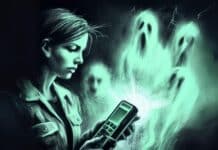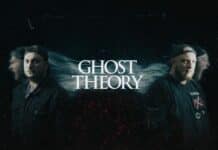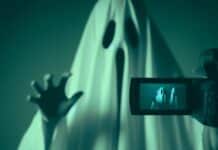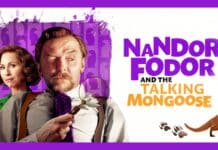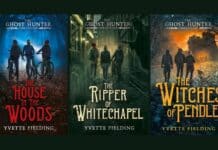ANDREW GARVEY reveals Victorian attitudes to the paranormal via the newspapers on the day
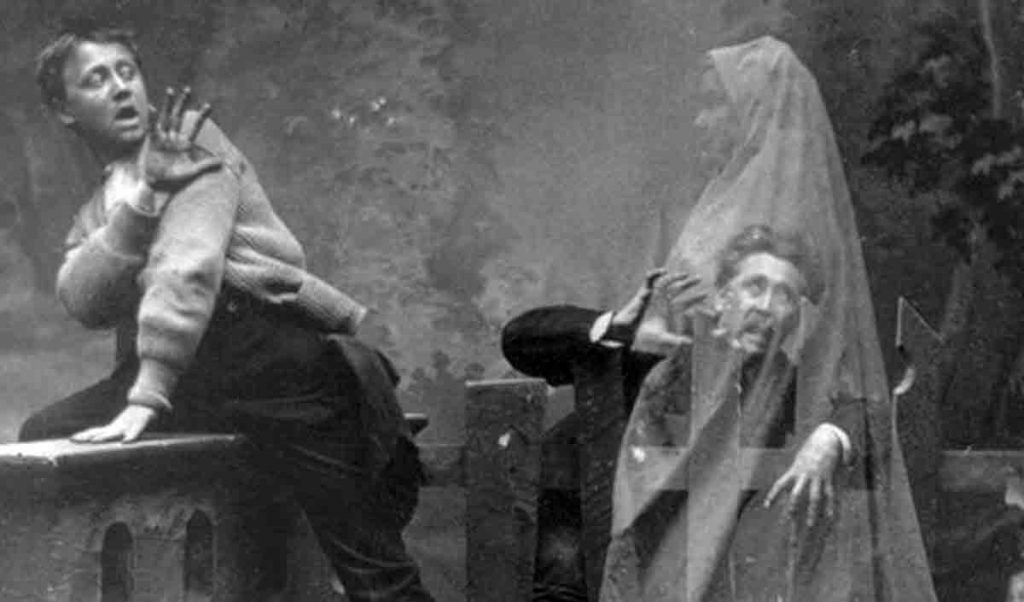
The Victorians seemed very fond of discussing, and reading about the assorted and mysterious activities of spiritualists and their ghostly contacts. This interest took many forms.
Some (at the richer end of society, obviously) handed money over for the spiritual experience and/or entertainment of an evening at home with a medium while others keenly followed the proceedings of assorted ‘scientific organisations’ peeking over at the ‘other side’.
A lengthy, fascinating and very, very Victorian letter from the November 17th 1896 London Daily News explores the work of one such group in some detail.
Scientific Observation
Prompted by an advertisement in the previous Saturday’s edition of the Times (“To Proprietors of Haunted Houses – A few gentlemen wish to have the opportunity of visiting a house said to be haunted, situate in or near London, for the purpose of scientific observation.”) our correspondent, identified only as Cornelius begins by explaining his initial thoughts.
Referring to the already well-established Victorian tradition of Christmas ghost stories, our friend Cornelius notes that “these genial productions are always dashed with these churchyard terrors which seem necessary for the intellectual enjoyment of an Englishman.”
“It struck me,” Cornelius writes “that perhaps a few bold writers were determined, instead of inventing facts for their publishers, to put themselves within positive reach of the terrible bogies they were before content with imagining.”
Vexed Spirits
On further consideration, Cornelius decides that the gentlemen who placed the ad genuinely “desire to analyse the apparitions, to ascertain their cause, to lay them, I suppose, if necessary.”
Comparing this scientific approach favourably with that of the more spiritually minded he notes that “a few years ago, if I do not mistake, the Spiritists made a pilgrimage to houses with a supernatural reputation… [but] the ghosts were extremely vexed at the intrusion. In fact, the spirits used very bad language, and refused sternly to perform any of the more engaging antics for which they are celebrated, but their presence was strongly marked and demonstrated.”
“It is evident, then, that the Spiritists are not the gentry who are now applying for the tenancy of haunted houses.”
The Famous Dialectical Society
“In truth, I believe I may say that I have discovered the good and courageous people who are so anxious to investigate the most profound mysteries of nature. Sir, the gentlemen who are so desirous of visiting haunted houses… are members of the famous Dialectical Society.”
Founded at the beginning of 1869 to investigate spiritual phenomena, the London Dialectical Society published a hefty 439 page report of their findings in 1871. And thanks to the modern magic of the internet, specifically the scanning project by Google Books and the always useful Internet Archive, the entire text of their ‘Report on Spiritualism’ is available for free.
Anyway, back to Cornelius’ letter.
Winter Ghosts
According to our letter writer, the Dialectical Society, having begun their investigations in the summer “would not close the evidence until the dark nights of winter gave them seasonable opportunities of challenging the ghosts.”
Yes, Cornelius seems to think ghosts (conveniently for those Christmas haunted tales noted earlier) only come out to play in the winter months. Perhaps they are on the continent during the warmer months? Possibly haunting the French?
“It is not” he continues “until the disciples of pure reason have had midnight inquests on the apparitions that they will deliver their verdict on the whole question of the truth or the falsehood of ghosts. We cannot accuse them of shirking or scamping the task they have assumed.”
After a few more glowing words about the Society (of which our ‘Cornelius’ is quite obviously a member, friend of a member/s or otherwise booster of) he goes on to raise another intriguing question.
Are Haunted Houses so Common in London?
“Such domiciles I should imagine must be signally unprofitable… a landlord with a ghost on his premises must have an unpleasant time of it.”
Reeling off a list of supposedly haunted houses and noting that “in Hampstead there are two or three residences in which no one dares to reside” our Cornelius deplores such nonsense, and the way it’s presented in a sensationalised manner.
“It is monstrous that at this stage of our so-called progress we should have fortune-tellers with or without almanacs, spiritists levitating or otherwise, fasting girls, and men and women who believe in haunted houses… [and] that advertisement ‘to the proprietors of haunted houses’ must be highly suggestive to any intelligent Frenchman who observes.”
The French
Ah yes, the French, that other Victorian obsession. Presumably Cornelius is worried that the Englishman who believes in ghosts might look silly to his Gallic neighbour and rival. The French of course, having no tradition of ghosts stories of their own.
Hopefully, Cornelius concludes confidently, the London Dialectical Society will clear this whole, silly business up, “benefit the unfortunate proprietors of the disagreeable mansions [and ensure that] ghosts will no longer have everything to themselves, and for aught we know, they may disappear at the very sight of the pundits and flit to the Red Sea, where so many of their companions are anchored. I shall await the upshot of the business with intense interest…”
Let’s hope that when he eventually read their final report in 1871 he enjoyed it.


